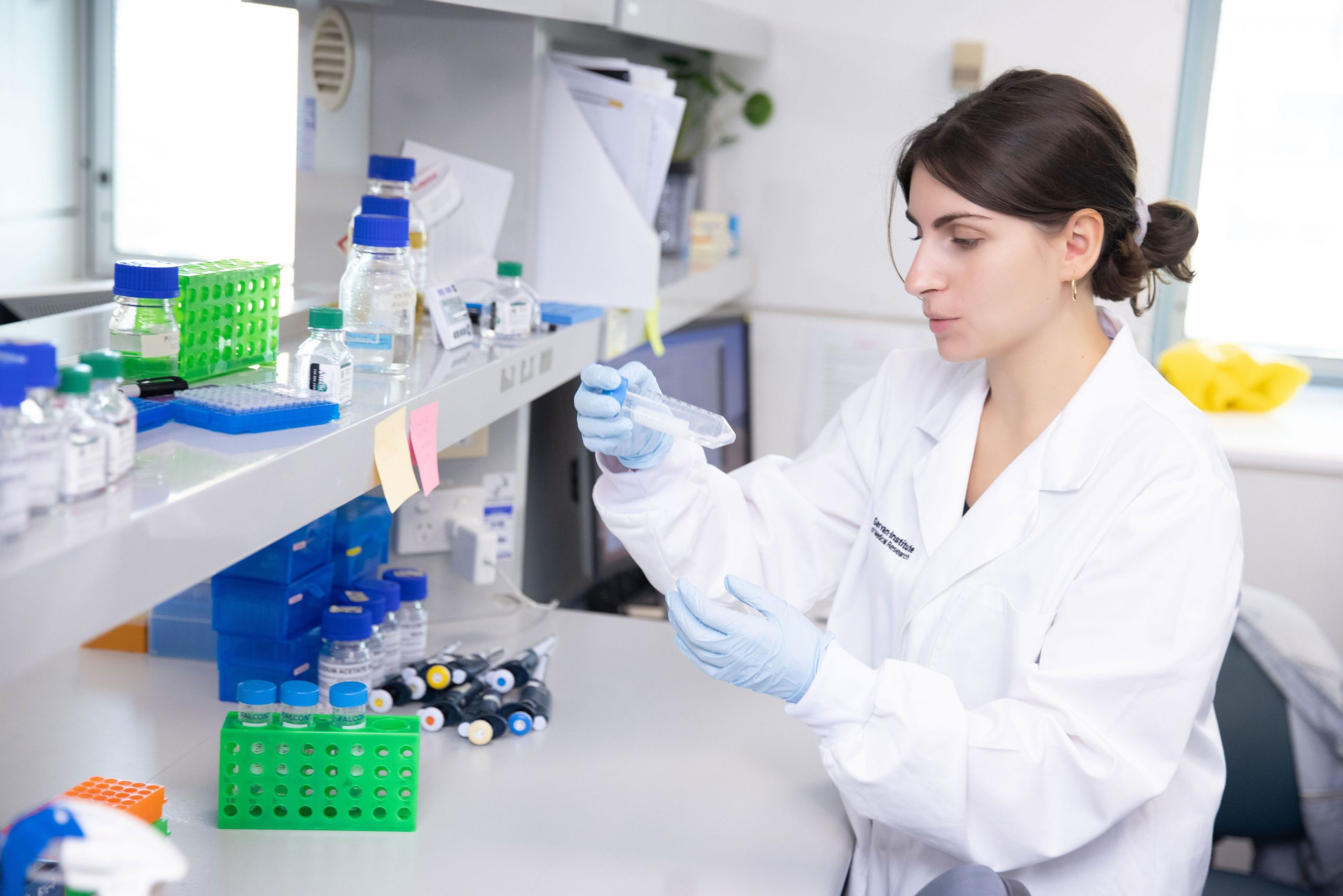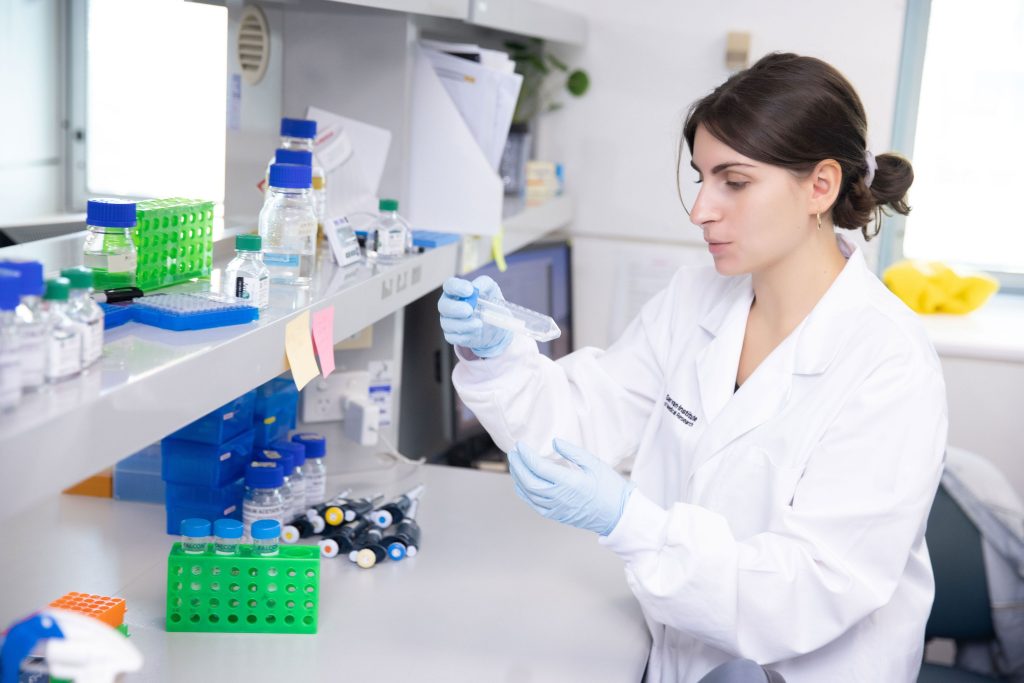By Savannah Minihan and Elizabeth Haris
When you think of a psychologist, perhaps you picture them sitting on an armchair, face-to-face with a client, notepad in hand. This perception of psychology is not an uncommon one, but it is not entirely accurate either. And it is especially unrepresentative of the diverse research areas represented by the 2021 psychology Women in Maths and Science PhD Champions. From analysing the relationship between brain connectivity and mental health (Elizabeth Haris) to studying decision-making (Octavia Soegyono), visual neuroscience (Jean Hsieh), adolescent mental health (Savannah Minihan), and the mental health of pilots (Corrie Ackland), we each have unique perspectives and experiences.
In early September, we spoke to 60 current UNSW psychology undergraduates about our experiences prior to our PhD, our current areas of research, and our goals and aspirations. We wanted to inspire them to continue their careers in science, because science can take you anywhere.
Read on to learn more about our journeys and the insights we have learned along the way 🙂

How did you come to do a PhD in Psychology at UNSW?
Octavia: I majored in psychology but wasn’t sure where I wanted to go in life so I applied to honours. The experience of working on my project was great and, although I was unsure about the topic initially, I really enjoyed learning about lab-based research.
Savannah: Prior to starting my PhD, I worked in an anxiety and trauma research group. This experience instilled in me a passion for translational clinical research. When the opportunity arose to complete a PhD at UNSW, focused on the development of novel interventions for mental health difficulties in young people, it seemed like the perfect fit.
Liz: I had started a PhD in the UK in basic neuroscience, but unfortunately was not passionate about the research, and knew I couldn’t continue with it for 4 years. So, when the opportunity to do a PhD in clinical neuroscience in Australia came up, I didn’t hesitate to say yes.
Corrie: I am a clinical psychologist and have been working in private practice for 10 years. As part of this, I work with clients who have a fear of flying, which puts me in a flight simulator for a few hours each week. This unique combination of clinical psychology and aviation experience made me a perfect fit for a research opportunity that came up right when I happened to be pondering a return to study. It seemed too serendipitous to pass up!
Jean: I completed my honours at Flinders University in Adelaide. My honours supervisor had collaborated with my current PhD supervisor, so once I decided to apply for a PhD, we had a chat. I really enjoyed our first meeting and so decided to do a PhD with him at UNSW.
What kind of research do you do?
Octavia: My research focuses on understanding the neural mechanisms which underpin our ability to make decisions and how impairments to these mechanisms may result in making suboptimal decisions. I do this by targeting and manipulating specific brain regions using newly developed neuroscience tools in combination with behavioural testing.
Savannah: My research investigates cognitive, emotional, and social processes that influence young people’s mental health. The idea is that we then take insights from this work to design novel mental health interventions, such as gamified cognitive training.
Liz: I work in clinical neuroscience, investigating the neural mechanisms underlying PTSD, depression, and anxiety. The connections of the part of the brain we know is a key player in all these disorders are still unclear. My research focuses on investigating these connections to determine the differences between disorders so that we can provide more accurate diagnoses and more targeted treatment options.
Corrie: My PhD is in aviation psychology; specifically, pilot psychology during COVID-19. I aim to gain an understanding not just of the psychological symptoms pilots are experiencing, but the possible vulnerability and protective factors.
Jean: My PhD project is about how colour and contrast influence our perception of faces when perceiving age. My project uses passport photographs of Australian citizens as naturalistic stimuli to improve our understanding of age perception and how it is performed in real-world tasks.
Where do you see yourself after your PhD?
Collectively, we are all just riding the PhD wave: enjoying the research experience and seeing where it takes us. If there’s one thing we’ve all learned about research, it’s that while it’s important to have a plan, flexibility and uncertainty are part of the package. But with so many great fellow scientists with whom to share the experience, we’re all having one hell of a journey.
If you’re keen to follow our work, check out our links below –



